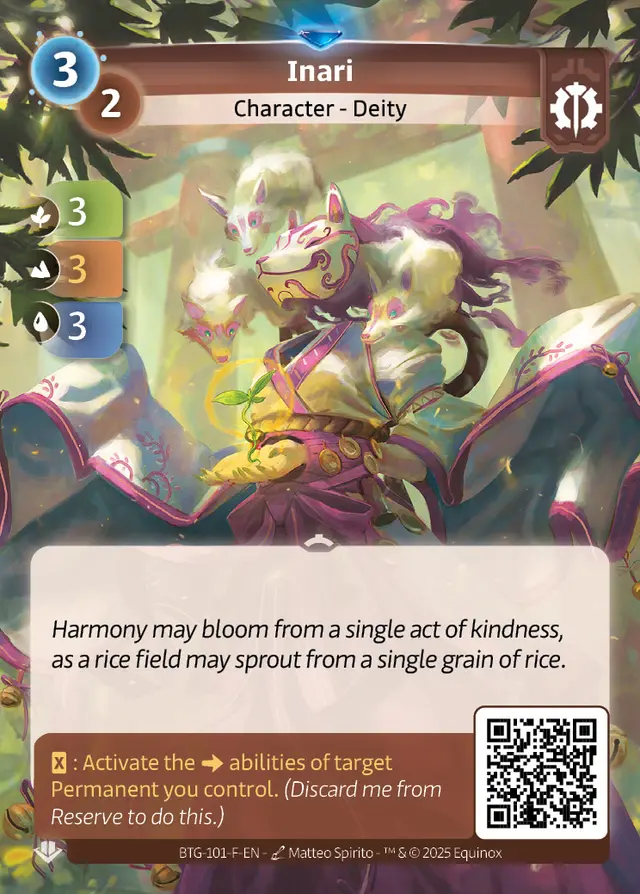Inari


Harmony may bloom from a single act of kindness, as a rice field may sprout from a single grain of rice.
Story
The sounds of taiko fill the air, while sparks shoot up from the bonfire and drift into the night sky. The priestesses quicken their rhythm, their sticks striking the skin of their drums. The music is intoxicating, the atmosphere otherworldly. I raise my bell instrument and shake it while starting a short dance. My movements are as slow as possible, like Dad taught me before we left. I try not to linger on the crowd, even though I know all eyes are on me for my first service. My heart is pounding, but I ask it to quiet down. Many are hoping the next harvest will be rich, and they're counting on me to bless the crops. I channel energy from the forest, the streams, the dormice and the badgers. I absorb it like a wave, gentle and sensuous. It is time to summon Inari, and to bestow our offerings on them.
The Mana spreads out around me, and the deity manifests near the pagoda. Their figure is evanescent at first, then takes on a more substantive form. They haven't chosen a gender this time, embracing a unique, non-human appearance, tinged with the aspect of the fox. The Eidolon approaches and joins in the dancing, adapting their movements to mine. Euphoria overtakes the jitters, and I begin to smile as our steps harmonize. The flutes let out a shrill lament into the night, piercing the sounds of nature. Fireflies glow and flicker among the branches, while twilight flowers timidly blossom... Something akin to a summer fever on this spring evening. We twirl in a crazed waltz. We pirouette, like two bumblebees around a flower. Then the music abruptly stops, and our bodies freeze.
Inspiration
The deity of grains and crops in Shintoism and Japanese Buddhism, Inari can appear as a woman or a man, as well as in the guise of a fox. The Kitsune serve as their messengers. According to legend, Inari took the appearance of a woman to end a terrible famine, riding a white fox and carrying boxes of grains and cereals. That is why this god was associated so early on with the concept of fertility. Yet they are also the patron kami of blacksmiths and merchants. Their most well-known sanctuary is Fushimi-Inari in Kyoto, with its many vermilion-colored torii.
Narrator
Teija
Date
375 AC